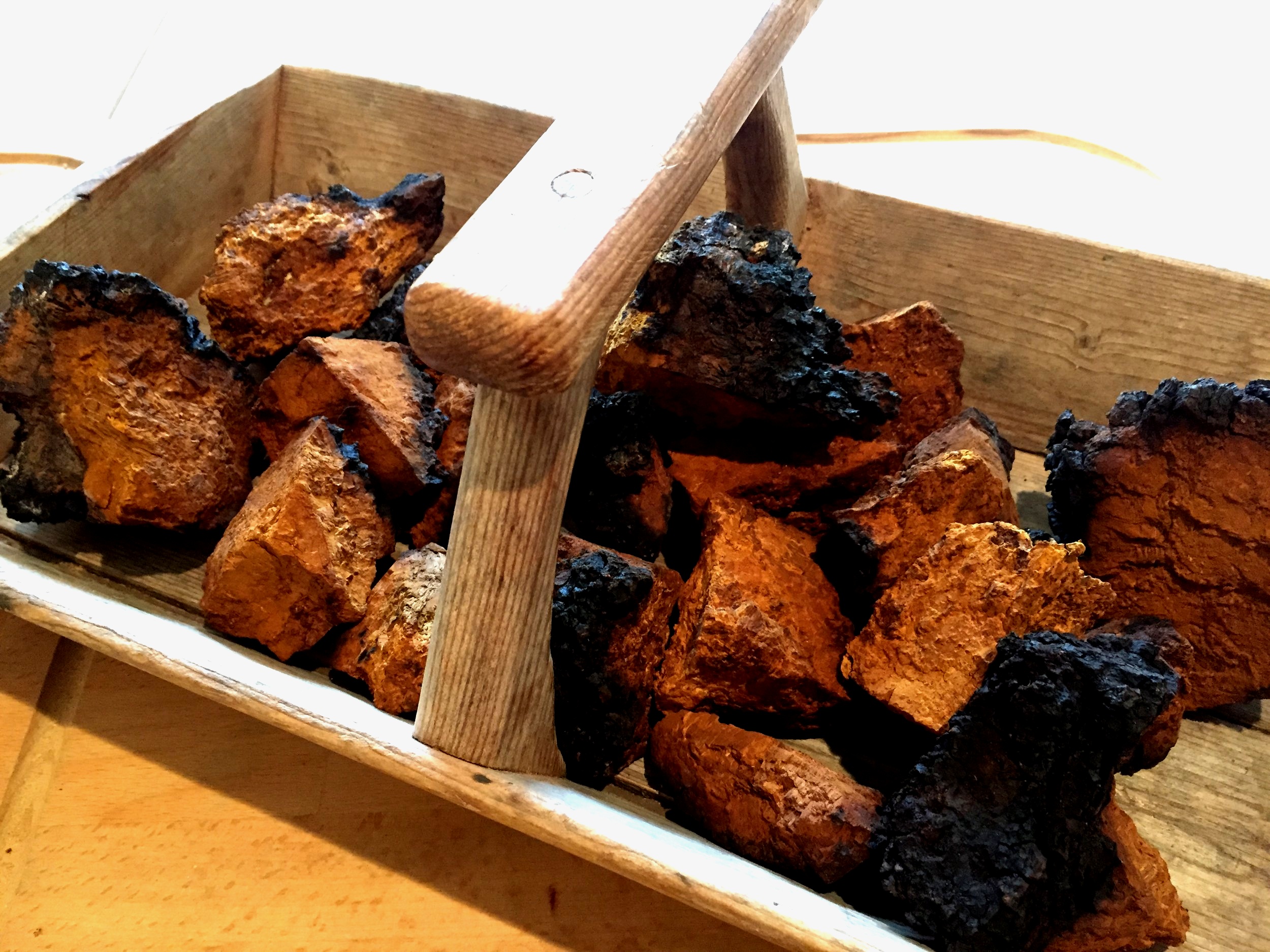Wellness Profile: Chaga Mushroom
What is Chaga Mushroom?
It’s the new year and in New England that means freezing temps, snow and plenty of viruses and bacteria going around! One of my favorite ways to stay well is by drinking chaga. Never heard of it? Read on to discover more about this fascinating fungus and it’s incredible properties that promote health.
Chaga (Inonotus obliquus) is a superfood mushroom and one of my most important winter remedies. When i was struggling with Lyme disease and had to give up coffee, chaga became my go to morning drink. Not only is it delicious, it’s incredibly beneficial to the immune system.
Before moving to Vermont, I had never heard of chaga. It does not grow in the sunny southern climes that I hail from due to its need for sub-zero temperatures in order to fruit. It is most often found growing from the wounds of Birch trees (among others including poplar and oak) and looks very much like a tree scab. It is actually a black mass of mycelium, being darkened by the massive amounts of melanin it contains. It is a parasitic invasion of the tree that can live up to 20 years. For us, it’s a medicinal powerhouse.
What Can Chaga Do for You?
Chaga has anti-oxidants and anti-inflammatory properties as well as vitamins B, D2 and K. It contains betulin, a chemical that clinical studies have proved useful in treating tumors. It also contains calcium and iron and is anti-viral and anti-fungal. Native people of the currently occupied lands of Canada, the United States and Russia use it for gastric distress, skin irritations and tuberculosis.
Chaga not only packs a wellness punch and tastes good, it is easy to make as well. I like to throw a chunk of chaga, usually about the size of my fist, in to my crock pot and then steep it on low overnight. I also make a tincture with organic vodka which draws different constituents from the the mushroom than water, giving you further health benefits. You can find chaga at most health food stores as well as online. Make sure you find a reputable source and that is it ethically harvested. Chaga needs extremely cold temperatures to fruit and as climate change continues we may see less and less of this healthful being in our woodlands.

